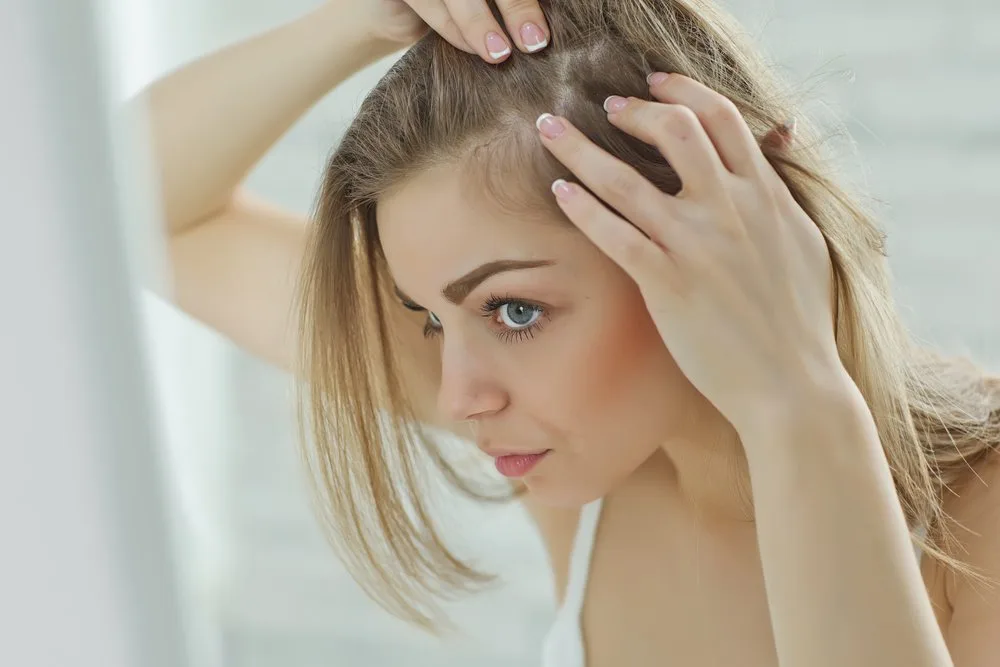Hair loss can be a deeply personal and distressing experience, triggering a wide range of emotions. We turn to herbal extracts, oils, supplements, rinses, massages, and anything else we can find to get our hair back. Recently social media was abuzz with a post on fisetin and resveratrol to promote hair growth. Let’s take a look at these antioxidants and see whether they hold any promise.
Fisetin
Fisetin is a natural compound found in many fruits and vegetables (including strawberries, apples, grapes, onions, and cucumbers) and some herbal teas, such as rooibos and chamomile. It belongs to a group of molecules called flavonoids, which are known for their health benefits.
Fisetin acts like a powerhouse for your cells in several ways:
1. It protects cells from damage caused by free radicals.
2. It calms down inflammation; this is a key factor in many health problems, including hair loss.
3. It keeps cells healthy and dividing properly. This may extend the lifespan of hair follicle stem cells, potentially promoting hair growth.
4. Fisetin might also improve blood flow, regulate blood sugar, and protect against brain diseases.
Animal studies suggest that fisetin may support hair growth through the activation of TERT, an enzyme that keeps telomeres healthy. It may also protect hair follicles from being damaged and stimulate the growth of stem cells within hair follicles.
Resveratrol
Resveratrol belongs to a group of molecules called stilbenes, which are known for their antioxidant, anti-proliferative, and anti-inflammatory properties. It’s found in various fruits and vegetables, especially red grapes (and therefore red wine). These molecules boast an intriguing chemical structure with potential for various health benefits, including those recently explored in the context of hair growth.
Like fisetin, resveratrol is a powerful antioxidant and anti-inflammatory. It’s also cardioprotective and may help regulate blood sugar levels and even protect against neurodegenerative diseases.
It’s believed that resveratrol activates sirtuins, proteins involved in longevity and cellular health. This might explain some of its potential anti-aging and disease-fighting properties.
When it comes to hair growth, resveratrol may stimulate stem cell activity, protect hair follicles from damage, and increase blood flow to the scalp.
What do the studies say?
A much talked-about study on fisetin and hair growth was published by Kubo and colleagues in 2020. The researchers wanted to see if the protein TERT (telomerase reverse transcriptase) could be used to activate dormant hair stem cells in the skin and trigger new hair growth.
Their interest in fisetin is based on cellular and animal studies. In cellular studies, it stimulated the proliferation of hair follicle stem cells, supporting the potential for hair growth. When fisetin was applied to the skin of shaved mice, their hair growth increased compared to the mice who didn’t receive it. The follicles were also thicker and more numerous, suggesting that fisetin would have the potential to promote hair growth.
What did the researchers find?
They established that fisetin increased TERT expression in both mouse skin and human hair follicle cells. This is relevant because every time a cell divides, telomeres become slightly shorter. This is normal, but with repeated cell divisions, they eventually become too short. This triggers cellular aging and apoptosis (programmed cell death).
Enter TERT. It can elongate telomeres, adding back the lost DNA sequences and helping maintain their protective function. This allows cells to divide for longer, potentially delaying aging and promoting growth.
Hair follicles are highly active tissues whose cells divide frequently to keep hair growing. What Kubo and colleagues found is that the increase in TERT expression in hair follicle cells led to longer telomeres, potentially providing the cells with an extended lifespan and the possibility of promoting robust hair growth.
And that’s not all they found. They also noted the activation of the β-catenin pathway, a crucial signaling cascade involved in hair follicle development and regeneration.
The researchers also investigated resveratrol and the combined effect of fisetin with resveratrol. The study showed that using them together resulted in strong hair-growth- promoting activity.
What does this all mean?
Should anyone who wants to regrow their hair rush out and stock up on fisetin and resveratrol?
Unfortunately, large-scale human studies explicitly investigating the efficacy of these substances for hair growth are still scarce. Whilst this research showed promising evidence, further studies are needed to determine the full potential of fisetin and resveratrol for hair growth in humans.
In other words, the evidence is promising, but not conclusive. Hopefully the research will continue, and scientists will develop new ways to promote hair growth.
References
Kubo C, Ogawa M, Uehara N, Katakura Y. Fisetin Promotes Hair Growth by Augmenting TERT Expression. Front Cell Dev Biol. 2020 Oct 15;8:566617. doi: 10.3389/fcell.2020.566617. PMID: 33178686; PMCID: PMC7593534.



![women [longevity live]](https://longevitylive.com/wp-content/uploads/2020/01/photo-of-women-walking-down-the-street-1116984-100x100.jpg)










